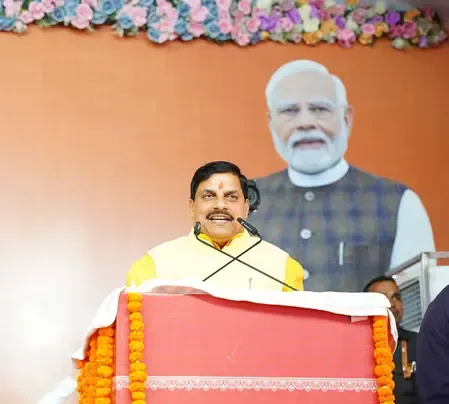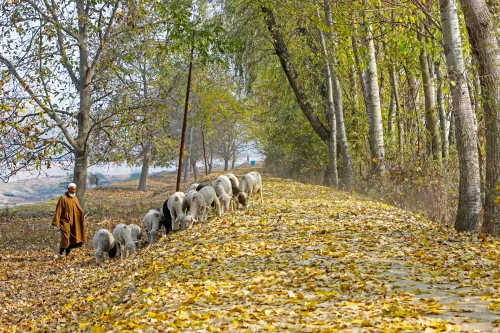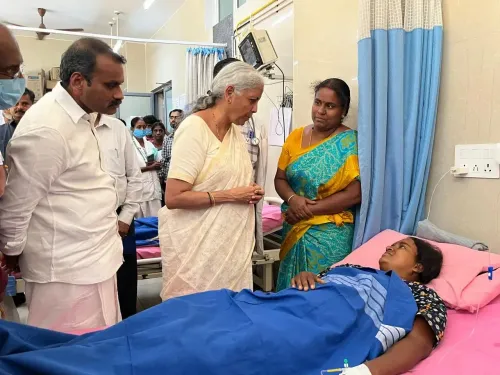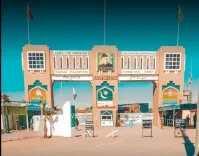Will MP CM Release Rs 489 Crore Grant to Over 20,000 Schools Under Right to Education?

Synopsis
Key Takeaways
- Madhya Pradesh CM to release Rs 489 crore to schools.
- Funding aims to support 8.45 lakh students.
- Schools must admit 25% of students from EWS.
- Event to include 'bhoomi-poojan' and project inaugurations.
- Over 19 lakh children have benefited since 2011.
Indore, Sep 29 (NationPress) Today, the Chief Minister of Madhya Pradesh, Mohan Yadav, is set to transfer Rs 489 crore to 20,652 non-government schools that have enrolled students from economically weaker sections (EWS) in compliance with the Right to Education (RTE) Act.
The funds will be directly deposited into the schools’ accounts with a single click during a public ceremony in Dhar district. School Education Minister Uday Pratap Singh will also be in attendance.
This grant is intended for non-government or non-aided schools that have met the requirement of providing free admission to at least 25 percent of students from disadvantaged backgrounds in their entry-level classes.
During the public event in Dhar district, Chief Minister Yadav will facilitate the transfer of funds into the accounts of these non-government schools.
The School Education Department stated, "Chief Minister Mohan Yadav is set to transfer Rs 489 crore to 20,652 non-government schools under the Right to Education (RTE) Act. This funding will assist in reimbursing the school fees of 8.45 lakh children enrolled for the 2023-2024 academic year."
Additionally, during this event, Chief Minister Yadav will perform a 'bhoomi-poojan', inaugurate various developmental projects, and oversee the distribution of benefits under different welfare schemes.
Since the implementation of the 'Right To Education' Act in 2011-12, approximately 19 lakh children have benefited, with the state government having reimbursed around Rs 3,000 crore as their fees to date, as per the Madhya Pradesh government.
The Centre's Right to Education (RTE) Act of 2009 mandates that private unaided schools reserve 25 percent of their entry-level seats (such as Class 1 or Nursery) for children from economically weaker sections (EWS) and disadvantaged groups (DG).
To support this initiative, the state government compensates for the free education offered, reimbursing schools for the per-child expenditure incurred.
The Centre’s RTE Act aims to ensure equitable access to quality education by mandating social integration in classrooms, enabling children from various backgrounds to learn together.









